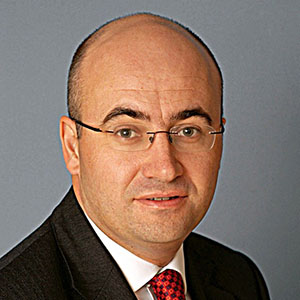The recent publication of ‘Dementia: a state of the nation report’ and its maps of variation was the culmination of many weeks’ hard work by Department of Health colleagues and our dedicated sector partners.
For the first time, anyone who wants or needs to know the range and availability of dementia diagnosis, treatment and support across England can view the data in one place. It’s an opportunity to educate and inform, but also share best practice and raise standards across the piece.
One benefit I hope this report will bring is a rise in the standard and prevalence of post-diagnostic care and support. Getting it right from point of diagnosis is critical to ensure a person is well cared for in the longer term. It’s important too that carers, family and friends are properly supported by local services in the care and support of their loved ones.
It’s why I’m pleased the Department, in association with other national organisations, including the Association of Directors of Adult Social Services, Public Health England and NHS England, has launched this survey. It’s aimed primarily at CCGs and local authorities, to find out more about the availability and range of post diagnostic support across the country.
Collectively, we want to consider ways to support local commissioners in offering high-quality support to people with dementia and their carers. It asks about the support available in your area, and what action you would like to see from national partners. I urge you to participate.

3 comments
Comment by Colin Springthorpe. posted on
Dear Sir, I have been working on this idea for a number of years now. I don't look for this idea, I stumbled over this idea by chance. I have placed the details on to the Internet, details can by found if you enter into Google Fondmoment Memory Diary. It seems to have help with my day to day memory, this is not a cure. But if it works, it could slow down the illness. Only time will tell if it or not. If you would like any details please contact me. Regards Colin Springthorpe UK
Comment by Janet Jadavji posted on
Dear Jon, I am so pleased to see this and glad you have placed it on your blog. I have just returned from speaking for the ADI in Hong Kong ,South Asia Pacific Conference Capacity Building in Dementia. The ADI in Hong Kong and Professor Chan has produced some fantastic initiatives about working to build capacity for the informal carers civil task force. I would be happy to meet and share this with you so here in the UK carers could benefit. Please look out for Yecco a free platform to help families care and support people with chronic conditions live from 20th Jan, would be happy to show you a sneak preview.
best regards
Janet Jadavji
CEO Yecco
Comment by Maria S Parsons posted on
We welcome the policy focus on post diagnostic support for people with dementia and their families, and look forward to contributing to the establishment of standards and protocols to ensure that local health and social care services commission a range of provision that meets the needs of individuals and carers throughout the trajectory of dementia.
I was involved in the development of the National Strategy where quite rightly the need to raise awareness and put systems in place to provide for early diagnosis was paramount. However I recall suggesting that the strategy did not tackle the wasteland between diagnosis and death. Living well with dementia post diagnosis depends on the provision of wide ranging flexible resources to meet individual needs and these needs are not simply instrumental. The need for meaningful occupation and engagement during the day is usually left to the imagination and resources of those affected and their families and friends. Given the decimation of day centres due to fiscal pressures on local council budgets, only those people meeting the now rather higher FACS criteria are eligible for day support in centres geared towards meeting substantial and critical need. severe needs. There is almost a perverse incentive to reach a state of severe cognitive impairment.
However there are other approaches to living well that with innovative person centred commissioning could be made available post diagnosis to maintain a quality of life and uphold citizenship and community involvement of people with dementia. Psycho social and creative approaches including the arts and culture have been shown to improve health and well -being and address social isolation of older people and people with dementia. There has been a huge growth in the number of artists, arts organisations and cultural institutions that are connecting with statutory, voluntary and commercial organisations – often however through short term projects. Some bold commissioning that offers people newly diagnosed with dementia a weekly session in a local arts and memory club, a specially curated tour of a local gallery, or a singing for the brain will deliver a range of positive outcomes. I was shown on Channel 4 some years ago commenting on Ladder to the Moon’s drama work with people with dementia rather rashly suggesting that I would rather have theatre than drugs’. Medical treatment has its place in helping people live well but so have the arts. The message to policy makers here, Mr. Rouse, is to think much more creatively about post diagnostic support for people with dementia.
Maria S Parsons, Director, Creative Dementia Arts Network